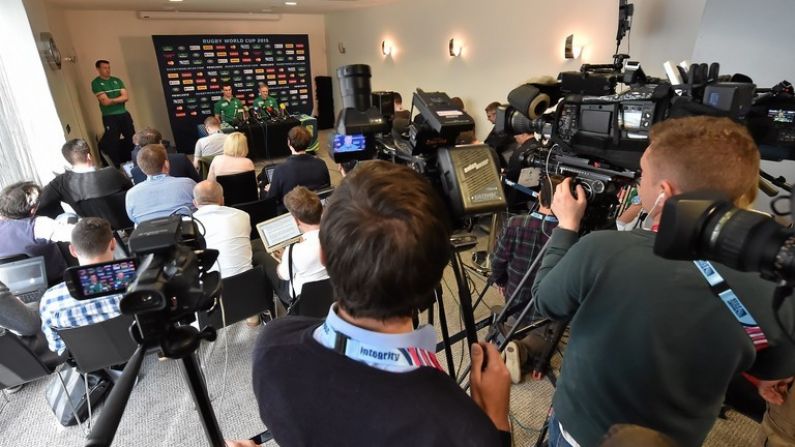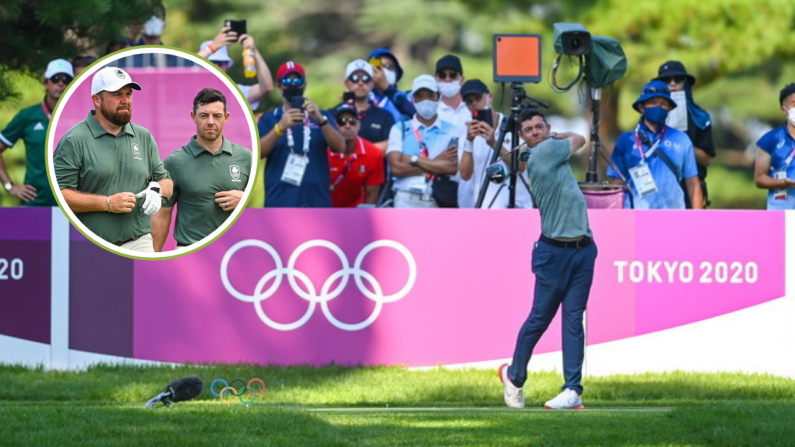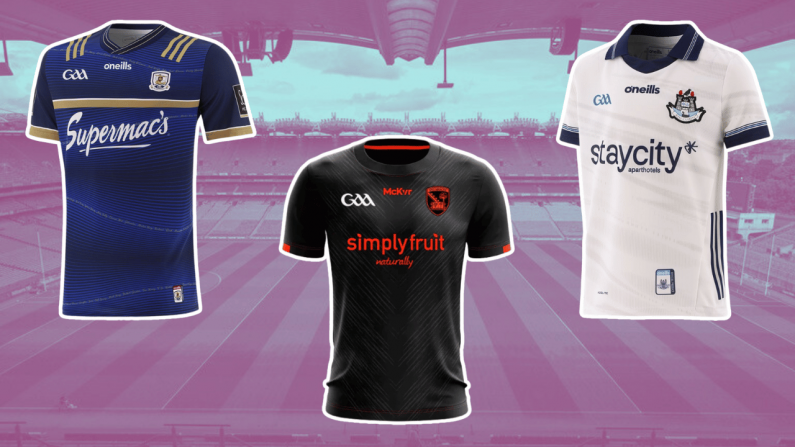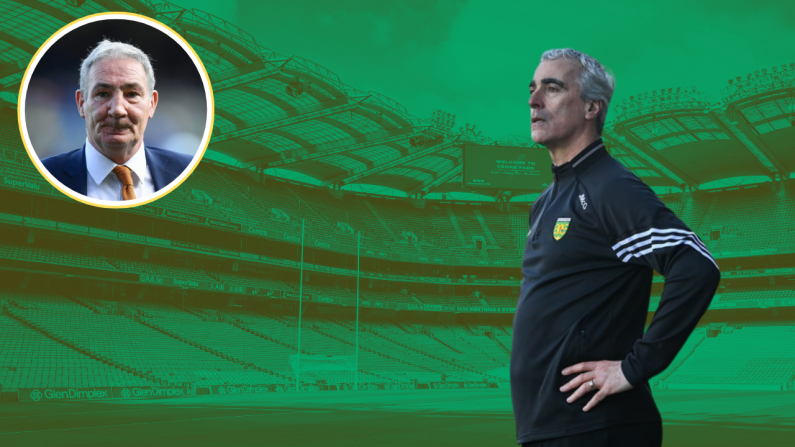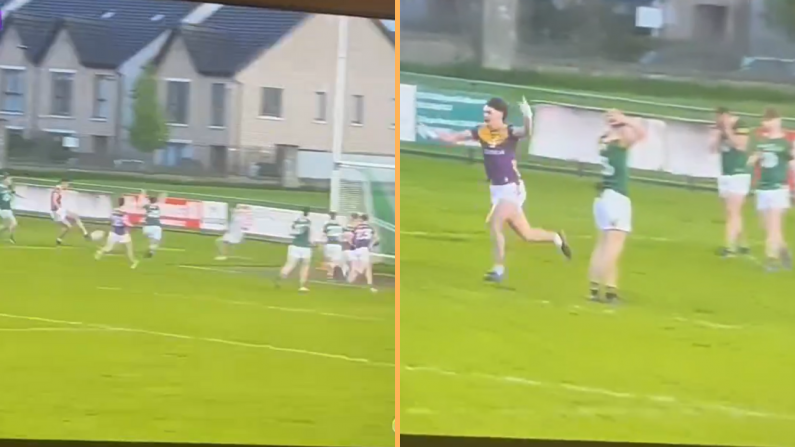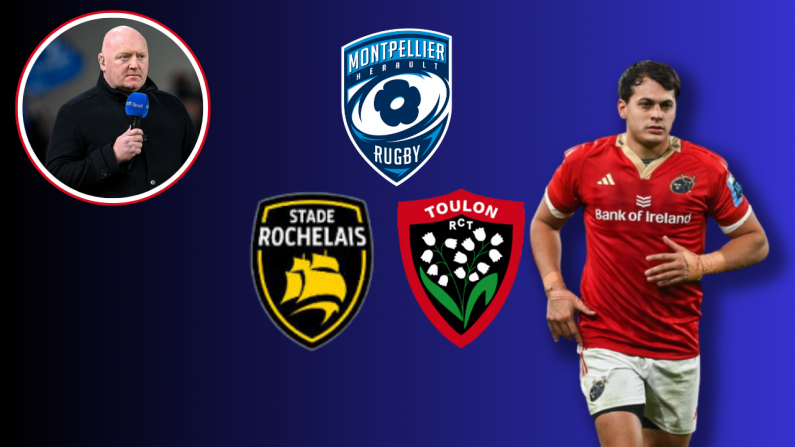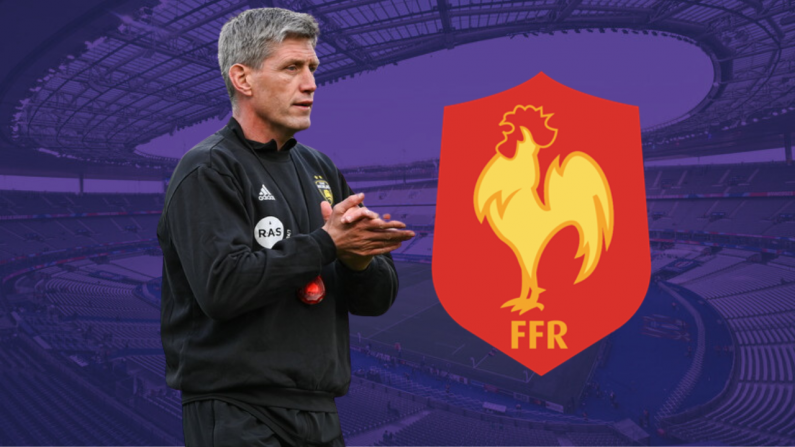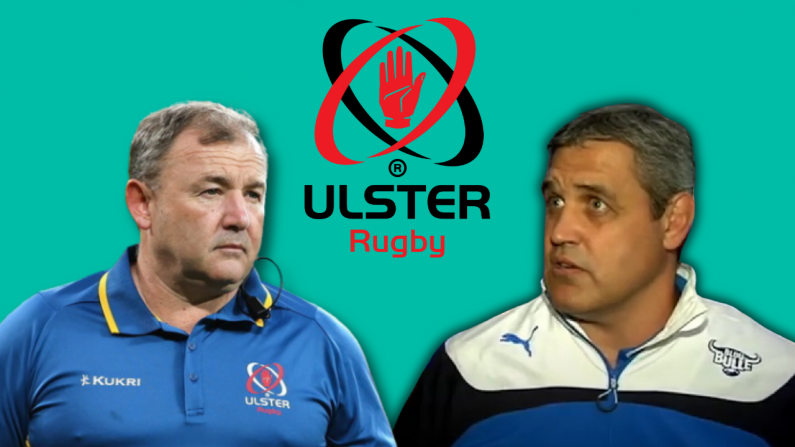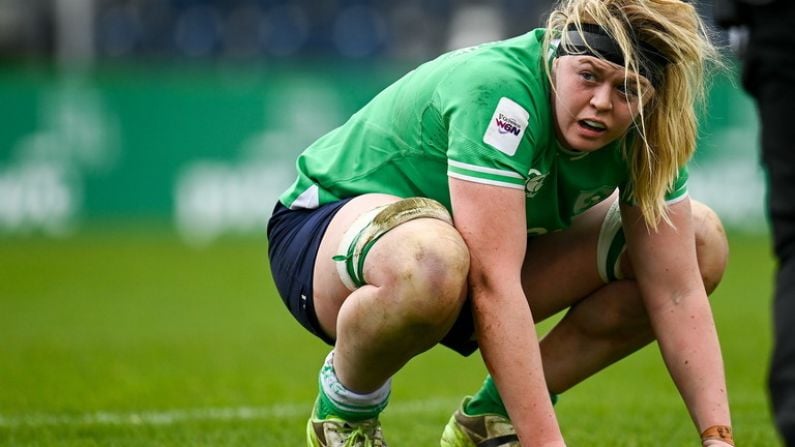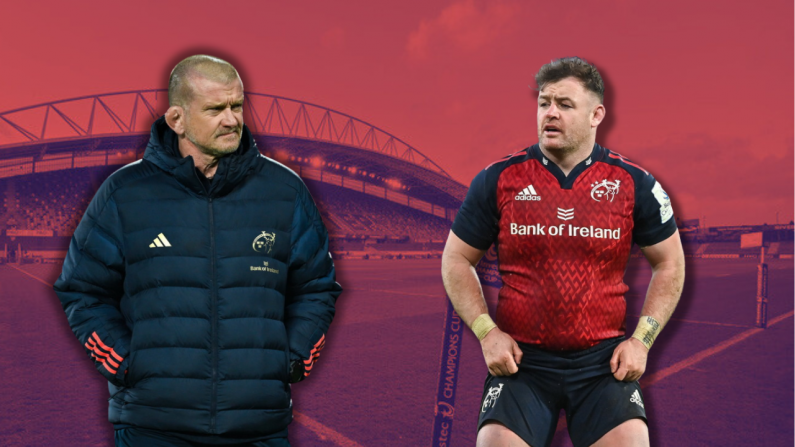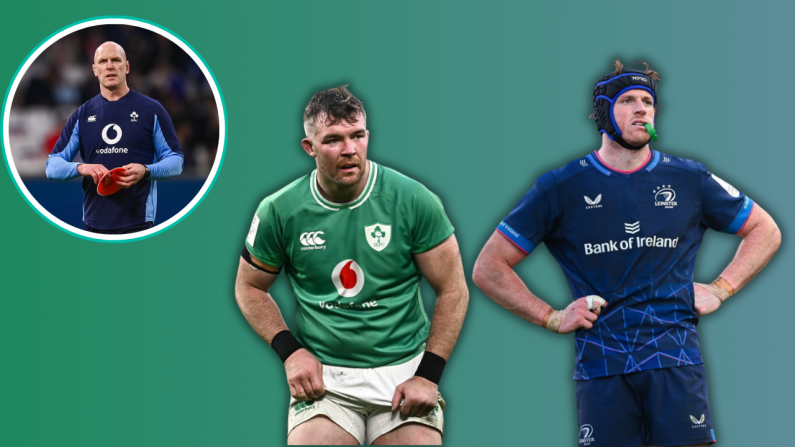Martin O'Neill's ongoing war with Tony O'Donoghue; the MTK Global boycott; Jim Gavin's latest dispute with RTE and the sinking of relations between the IRFU and its press: rarely has there been such conspicuous ill-feeling between Irish sport and its media. While the O'Neill/O'Donoghue dynamic has been playing out on television for some time now and the reasons behind the MTK and Gavin/RTE disputes are well publicised, the souring of relations in rugby seems curious on the outside.
Why is it coming when Ireland are top of the Six Nations and Leinster and Munster are in the quarter-finals in the Champions Cup?
To understand why this is happening, Balls spoke to four journalists who regularly cover the Irish rugby team. They provided background on what is happening on the condition of anonymity.
The curtailing of media access for all journalists along with the treatment of certain individual reporters is causing discord among the Irish rugby media, while recent media coverage of the Gerbrandt Grobler story and Bundee Aki's decision to play for Ireland is understood to have irritated the IRFU.
All journalists have seen the amount of access to players and coaches decrease during the course of Joe Schmidt's tenure. A Monday injury briefing which featured the team manager and a player was ended in November, and has been replaced with a press release issued by the IRFU.
In recent years, the IRFU have expanded their own media footprint to push out their own content across social media. This has directly curtailed media access. An assistant coach no longer speaks to the media on a Friday ahead of a game, and is instead interviewed by Irish Rugby TV. While the IRFU make this content available to be used for free by all media outlets, they have told the independent media that they are increasingly seen as rivals, as Gerry Thornley of The Irish Times confirmed this week on Second Captains.
Amid this changing media landscape, tensions between the IRFU and the press have occasionally bubbled over.
After the Six Nations game against France in 2017 a reporter with a national daily newspaper was excluded from a post-match huddle interview with Joe Schmidt.
We understand that the issue related to a piece written in the build-up to the game, which quoted an assistant coach calling on referee Nigel Owens to protect the Irish players in the wake of bruising encounters. It is thought that Irish management took issue with the referee being made part of the narrative of the build-up to the game.
The huddle went ahead in the journalist's absence.
The exclusion of the journalist, and the decision to carry on with the huddle created tension among rugby writers.
A similar incident occurred on a tour to New Zealand in 2006, when it was made known to the press that the players may be unwilling to co-operate with Dave Kelly of the Irish Independent as they had taken issue by some of his coverage. The Irish press corps refused to engage with the players in his absence, and following dialogue in which the press threatened to airbrush the names of Irish rugby sponsors from published photos, a resolution was found.
After the exclusion of the journalist in 2017, the Rugby Writers of Ireland voted at their AGM that a 'one out, all out' policy would be adhered to if any journalist was excluded from a press conference in the future.
That agreement failed an early test in Paris earlier this month, after Ireland's dramatic Six Nations win over France.
Minutes before the start of the post-match huddle with Schmidt, one journalist was informed that the huddle would not go ahead were he involved. The issue related to an error made in the publishing of an article online earlier that week that was corrected within hours of publication.
The huddle went ahead in the reporter's absence.
Balls understands that a number of members of the Rugby Writers of Ireland expressed anger that the huddle went ahead, while some of those who did attend expressed regret over doing so.
We've been informed of a couple of reasons for the briefing going ahead, one of them the fact that the journalist in question was eager for his colleagues to go ahead in his absence, as he was set to meet with the IRFU the following day.
The timing and delivery of the news by the IRFU has also been cited as a reason for the failure of the 'one out, all out' policy. Rather than communicate directly with the excluded reporter or his employers ahead of the game, a member of the IRFU elected to inform the chair of the Rugby Writers of Ireland of the decision minutes ahead of the huddle, who was told to pass on the news to his colleague.
The following week, ahead of the Italy game, we understand that the IRFU informed the Rugby Writers at a meeting that they could offer no assurances that such an incident would not happen again.
The following day, the Rugby Writers were told that the huddle tradition would not go ahead after the Italy game for the first time in Joe Schmidt's tenure.
While Schmidt is contractually obliged to speak to TV and radio rights holders and conduct a post-match press conference, the huddle has been maintained by tradition. It consists of a group of journalists writing for daily newspapers (rarely more than eight) questioning Schmidt for approximately ten minutes, with all content held for Monday's papers.
The questioning is less to do with the game just completed than it is with the week ahead, and has been used to give the Irish coach the opportunity to set the agenda for the week ahead.
A number of journalists have told Balls that they believe Schmidt is uncomfortable with the format, as they are more confrontational and often cover a broader range of topics than standard post-game press conferences.
While the difficulties are not seen as irreparable and there is hope that relations can be improved, many of the journalists we spoke to speculated as to what relations will be like when results go awry.
The IRFU have yet to respond to our requests for comment.

